Israel is a land of profound complexity, unparalleled history, and modern, vibrant energy. It's a place that exists on a scale all its own. In a single day, you can walk the 3,000-year-old stones of Jerusalem's Old City, float in the otherworldly waters of the Dead Sea, and then party until dawn in the non-stop, Mediterranean metropolis of Tel Aviv.
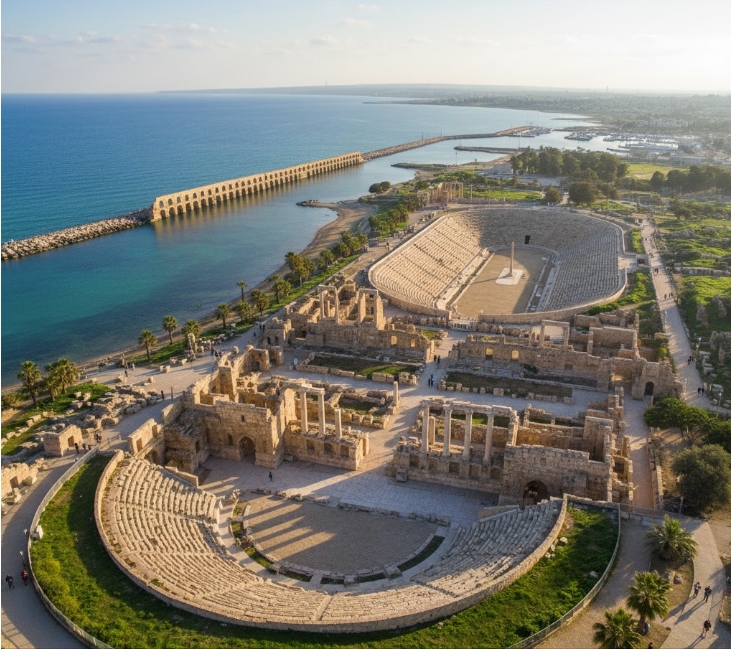
It is a journey that will challenge, inspire, and move you. For the first-time visitor, a 7-day trip is the perfect amount of time to get a deep, meaningful taste of the country's main highlights—from its ancient past to its bustling present.
This guide is designed for future travel. It’s a plan to help you dream and prepare for when the time is right to explore this deeply fascinating corner of the world.
Is Israel Safe for Tourists Right Now?
Before we plan any trip, this is the most important question. As of late 2025, the region is experiencing a period of intense conflict. Many governments (including the US, UK, and Australia) have issued "Do Not Travel" advisories.
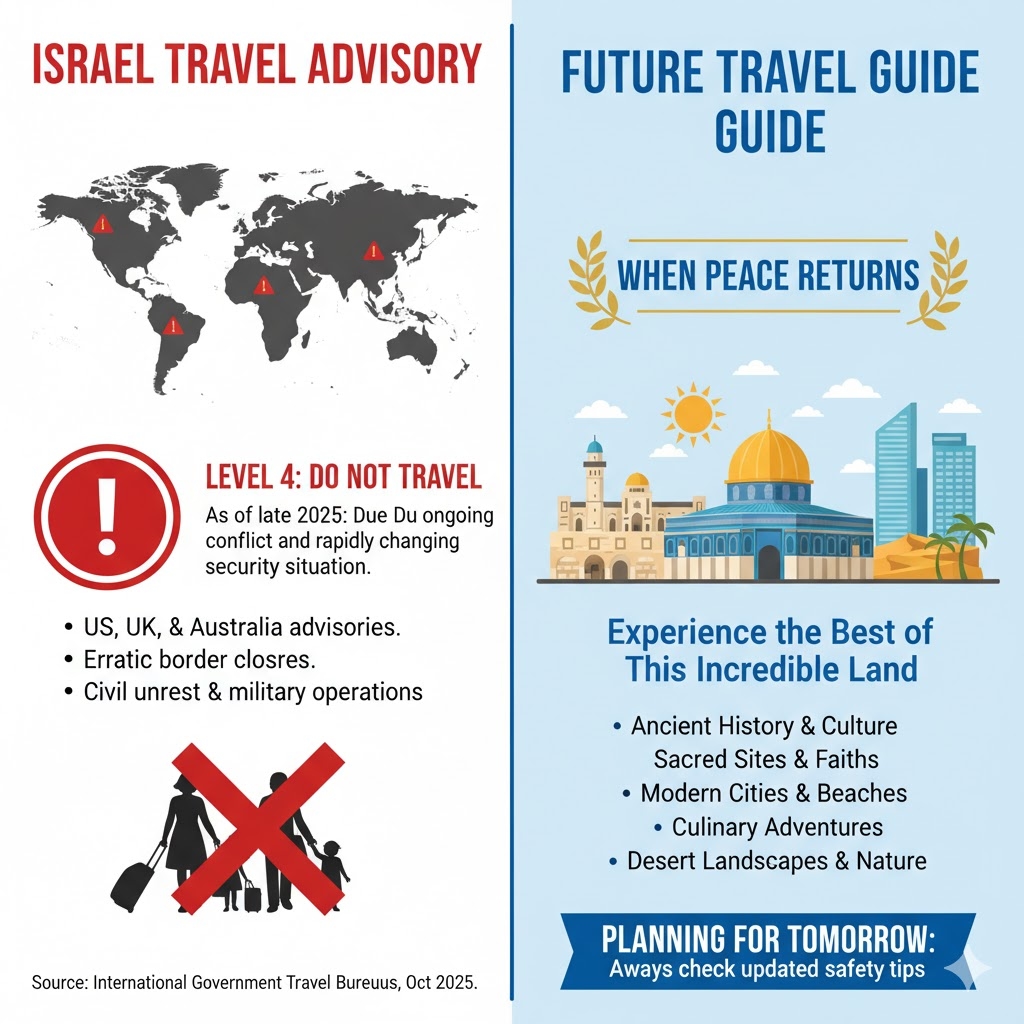
This itinerary is for informational and future planning purposes only. The security situation can change rapidly. When the time for peace returns, this guide will help you see the best of this incredible land. Always check Safety Tips for Traveling in Israel before booking any travel.
Do I Need an eVisa for Israel?
This is a key change for all travelers. For decades, citizens of many countries (like the USA, UK, Canada, and EU nations) could enter Israel visa-free.
This has now changed. Israel has introduced the ETA-IL (Electronic Travel Authorization) system.
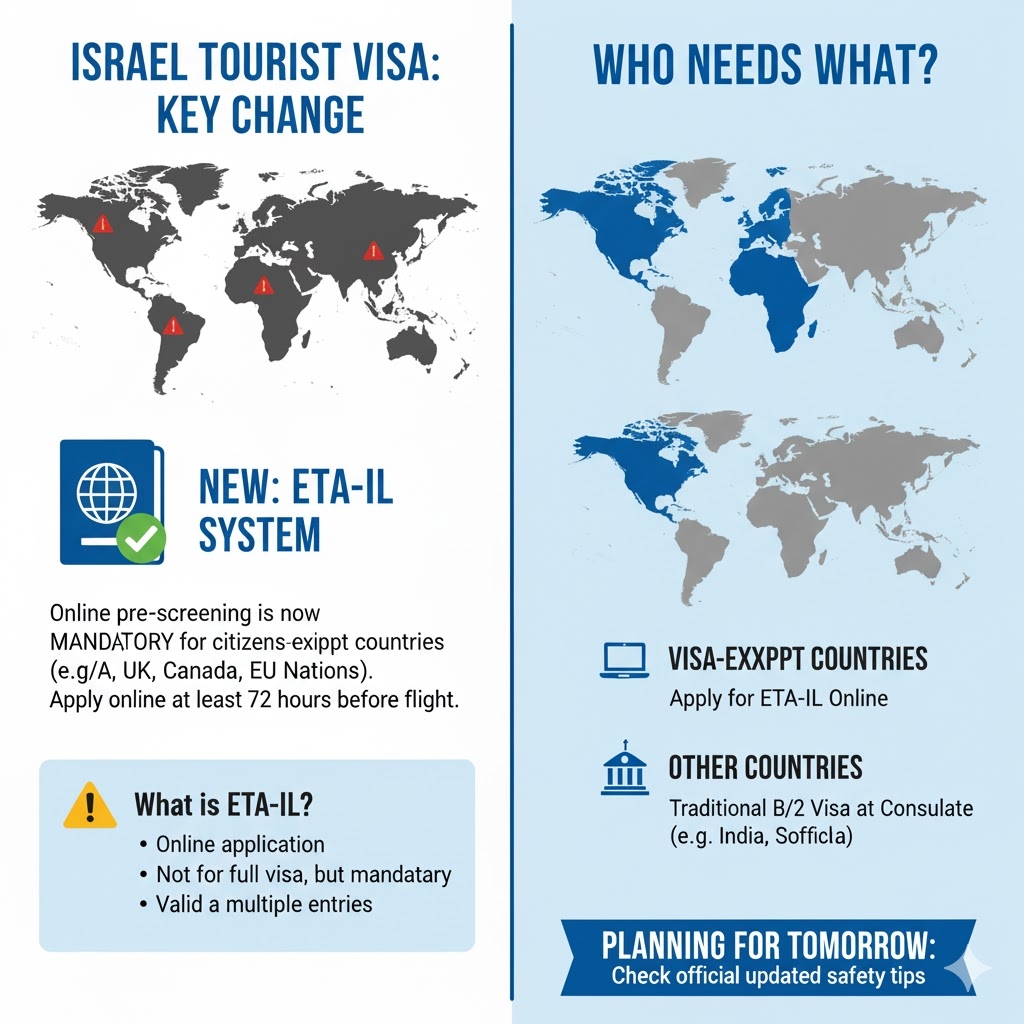
What is the ETA-IL? It's an online pre-screening requirement. It is not a full, complex visa, but it is mandatory for all visitors from visa-exempt countries. You must apply online at least 72 hours before your flight.
What about other countries? If your country was not on the visa-exempt list (e.g., India, South Africa), you will still need to apply for a traditional B/2 Visitor Visa at an Israeli consulate.
This guide's "Israel Tourist Visa" section focuses on the new, mandatory ETA-IL that most Western tourists will need.
What is the Official ETA-IL Application Process?
The official process is designed to be simple:
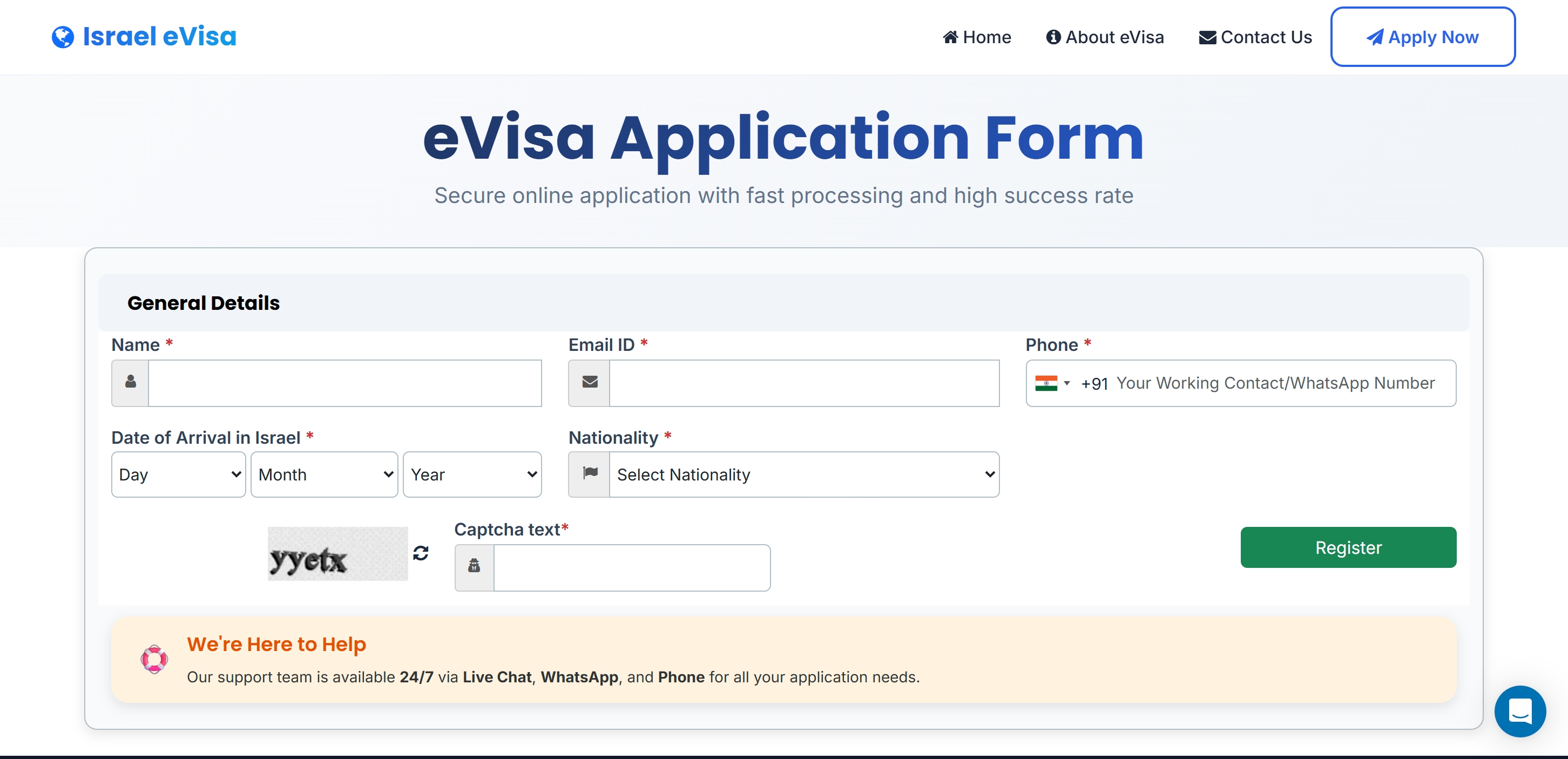
Fill out the online Israel eVisa application with your passport, travel, and personal details.
Upload a passport-style photo and a scan of your passport bio page.
Pay the application fee (around 25 ILS) online.
Wait for approval (typically 24-72 hours), which is sent to your email. You must have this approval to board your flight.
Is it Better to Apply Through an Agent or the Official Website?
This is a common dilemma for travelers. You see the official government site, but you also see trusted travel agencies offering to handle the ETA-IL for you. Here is a Q&A to help you decide.
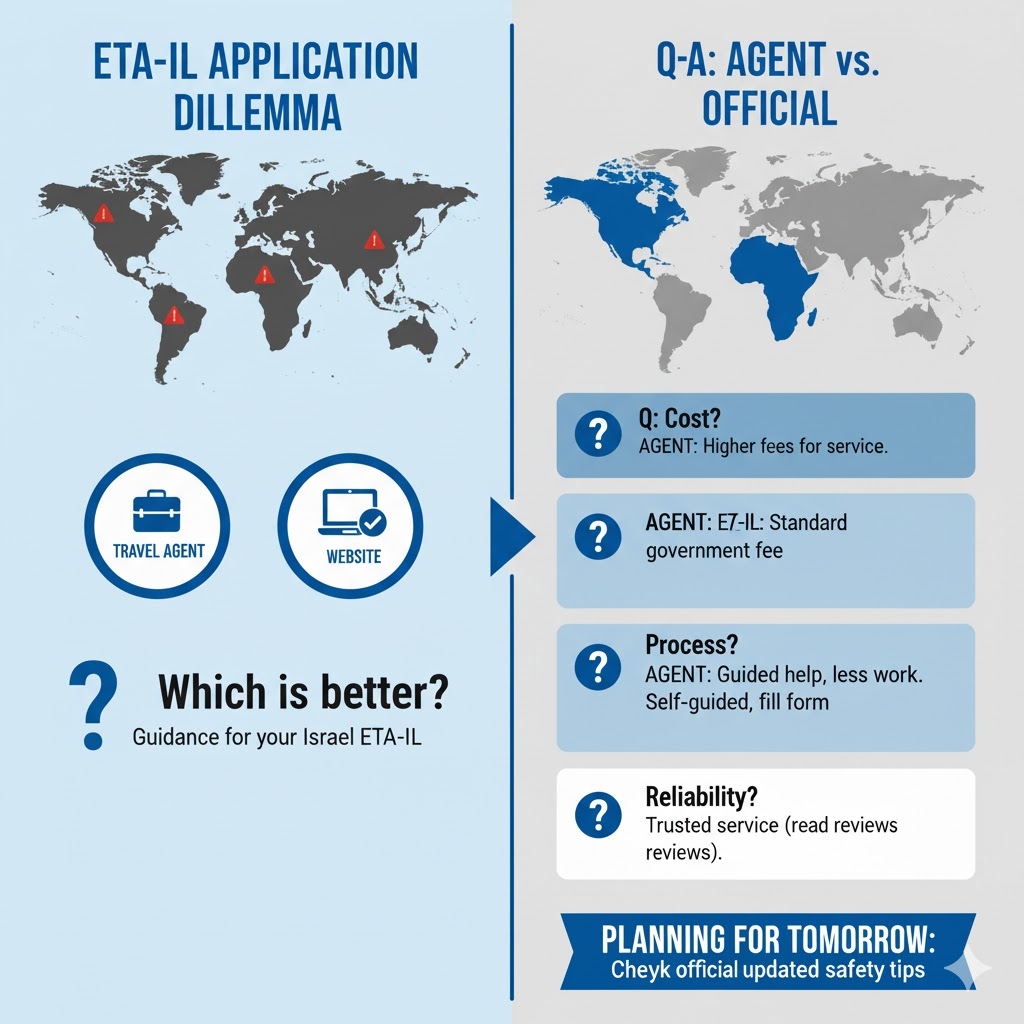
Why not just use the official government website? It’s cheaper.
You are right; the official portal is the cheapest option. If you are a confident traveler, have a simple, straightforward application (no criminal history, no past visa rejections), and you are very careful with details, the official site can work fine. You pay the base fee and get your approval.
What if I make a mistake on the official site?
This is the biggest risk. On a government portal, there are no correction options after you submit. A simple typo in your passport number or a photo that doesn't meet the exact pixel requirements can lead to an instant rejection. If you are rejected, you do not get a refund. This can jeopardize your flights, hotels, and entire trip.
How does a travel agent prevent this “israel-evisa.com”?
A trusted “israel-evisa.com” main value is document verification. They are experts who act as your "travel insurance" for the application.
They check all your documents before submission to ensure everything is perfect.
They ensure your photo is correctly sized and your forms are error-free.
This review process virtually eliminates the chance of rejection due to simple mistakes, giving them a much higher success rate.
If there are any delays, they have channels to follow up and expedite the process.
What if I need help or my case is complex?
This is where agents are essential.
24/7 Support: Agents offer round-the-clock support via chat, email, or WhatsApp. If you're stressed, you can talk to a real person. The official portal has no customer support.
Language Help: Agents can offer assistance in your native language, ensuring you understand every question.
Complex Cases: Do you have dual nationality? An expired document? A previous (unrelated) visa rejection? Agents know how to handle these special cases to ensure approval. A government form doesn't.
Is the extra cost for an agent worth it?
Applying through the official government site is cheaper, but it offers zero support, no refunds, and no corrections.
Applying through a reliable e-Visa service provider or travel agency costs more, but you are paying for a service that provides expert review, 24/7 assistance, secure payment options, and peace of mind. For a major trip to Israel, many travelers find this a small and worthwhile price to pay.
When is the Best Time to Visit Israel?
The best times to visit are the "shoulder seasons":
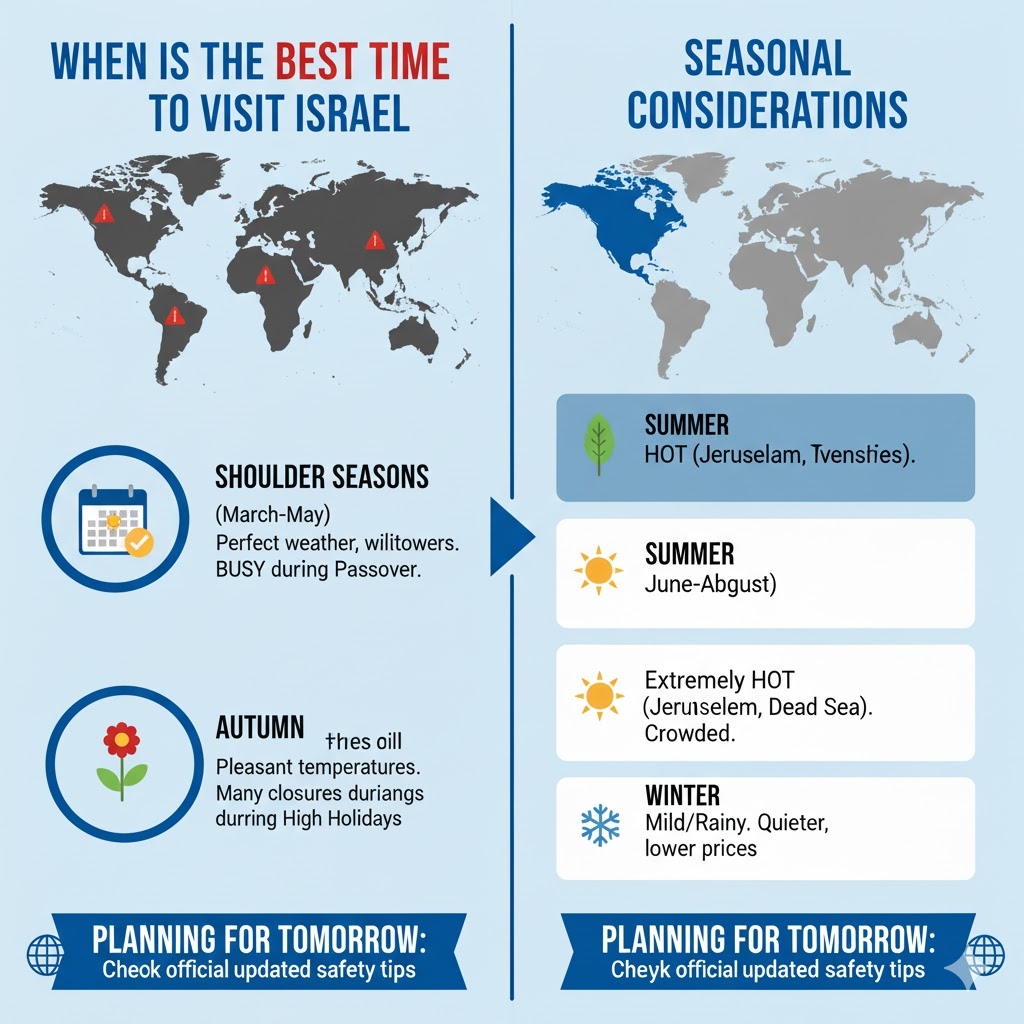
Spring (March - May): The weather is perfect, wildflowers are in bloom, and the country is green. This is an ideal time, but be aware that Passover can be a very busy and expensive time to visit.
Autumn (September - November): The intense summer heat has broken, and the weather is pleasant. Be mindful of the High Holidays (Rosh Hashanah, Yom Kippur), which can see many things close.
Summer (June - August) can be extremely hot, especially in Jerusalem and the Dead Sea.
What Currency is Used in Israel?
The currency is the New Israeli Shekel (ILS).
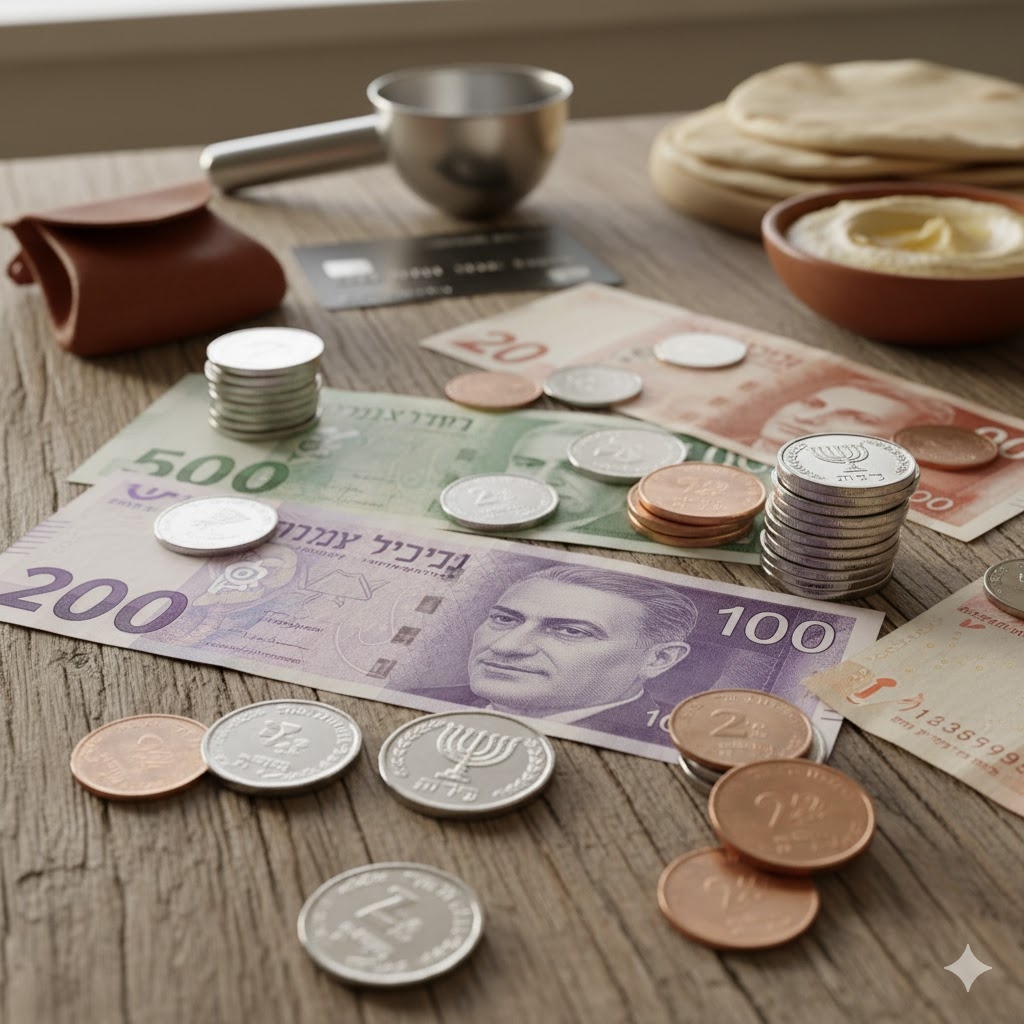
Credit Cards: Widely accepted in all hotels, restaurants, and most shops.
Cash: You will want cash for markets (like Mahane Yehuda), small food stalls (falafel, hummus), and for some taxis or sheruts. ATMs are everywhere.
How Do You Get Around Israel?
Israel has fantastic public transport.
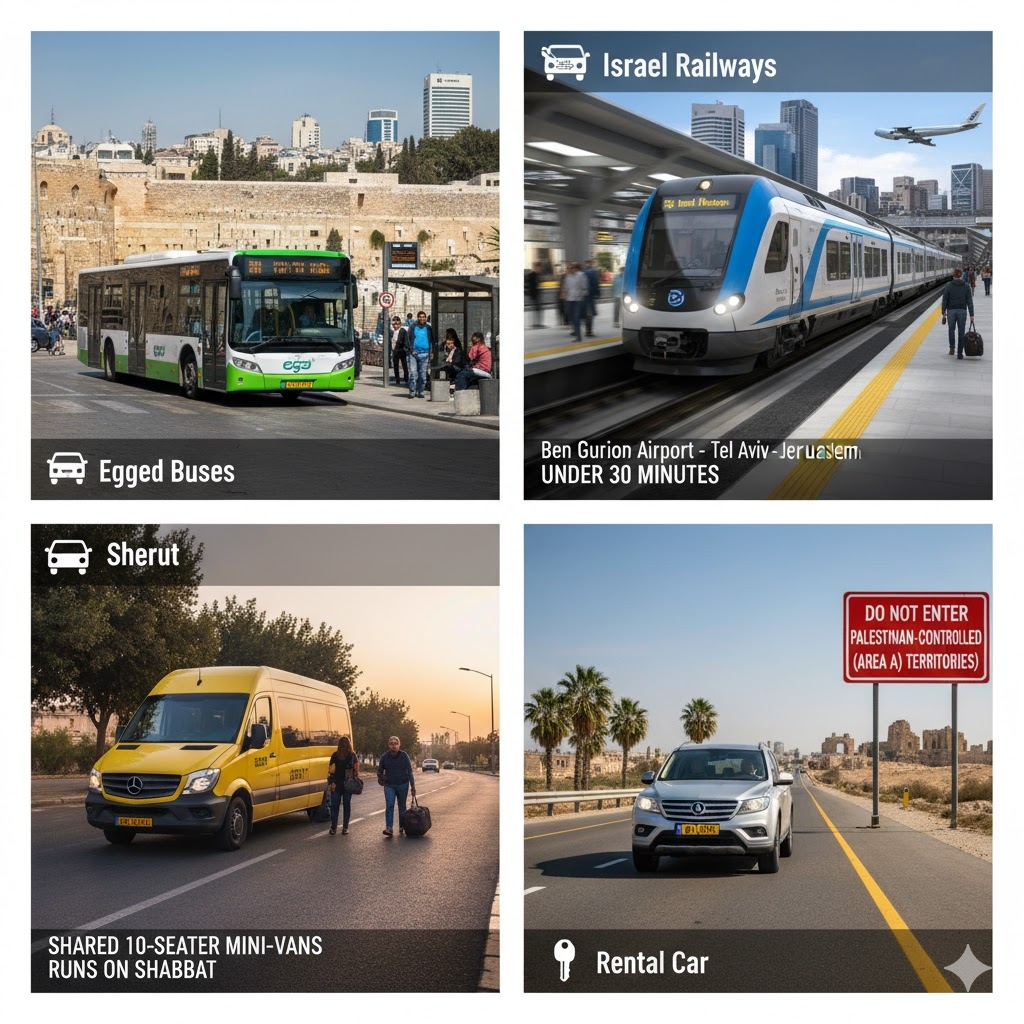
Egged Buses: This is the primary national bus company and will get you almost anywhere.
Israel Railways: A fast, modern train connects Ben Gurion Airport, Tel Aviv, and Jerusalem in under 30 minutes.
Sherut: These are shared, 10-seater mini-vans that run along major routes. They are cheap and are often the only transport running on Shabbat.
Rental Car: A great option for exploring, but do not take an Israeli-plated car into Palestinian-controlled (Area A) territories like Bethlehem.
Your Ultimate 7-Day Israel Itinerary
This itinerary is a whirlwind of history, food, and culture that starts with the modern and ends with the ancient.
Day 1: Arrival in Tel Aviv & Old Jaffa
Arrive at Ben Gurion Airport (TLV). Pick up a Rav-Kav card (for public transport) and a local SIM card (Partner or Cellcom). Take the train to Tel Aviv and check into your hotel.
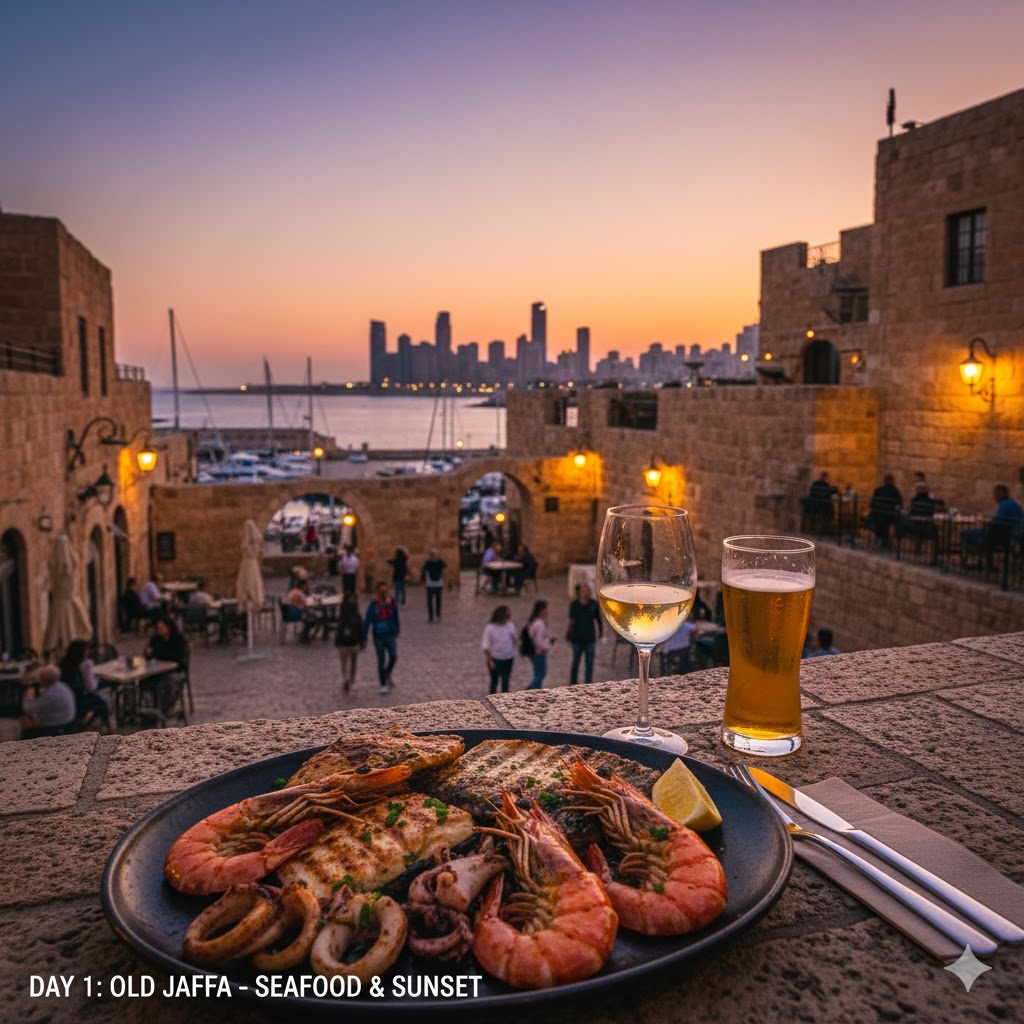
Spend your first evening exploring Old Jaffa (Yafo), the ancient port city from which Tel Aviv has grown. Get lost in its stone alleys, browse the artisan galleries, and have a fresh seafood dinner overlooking the Mediterranean as the Tel Aviv skyline lights up.
Day 2: Tel Aviv: The White City & Carmel Market
Today is for exploring "the Bubble." Start by walking through the Rothschild Boulevard to see the White City, a UNESCO World Heritage site with the world's largest collection of Bauhaus architecture.
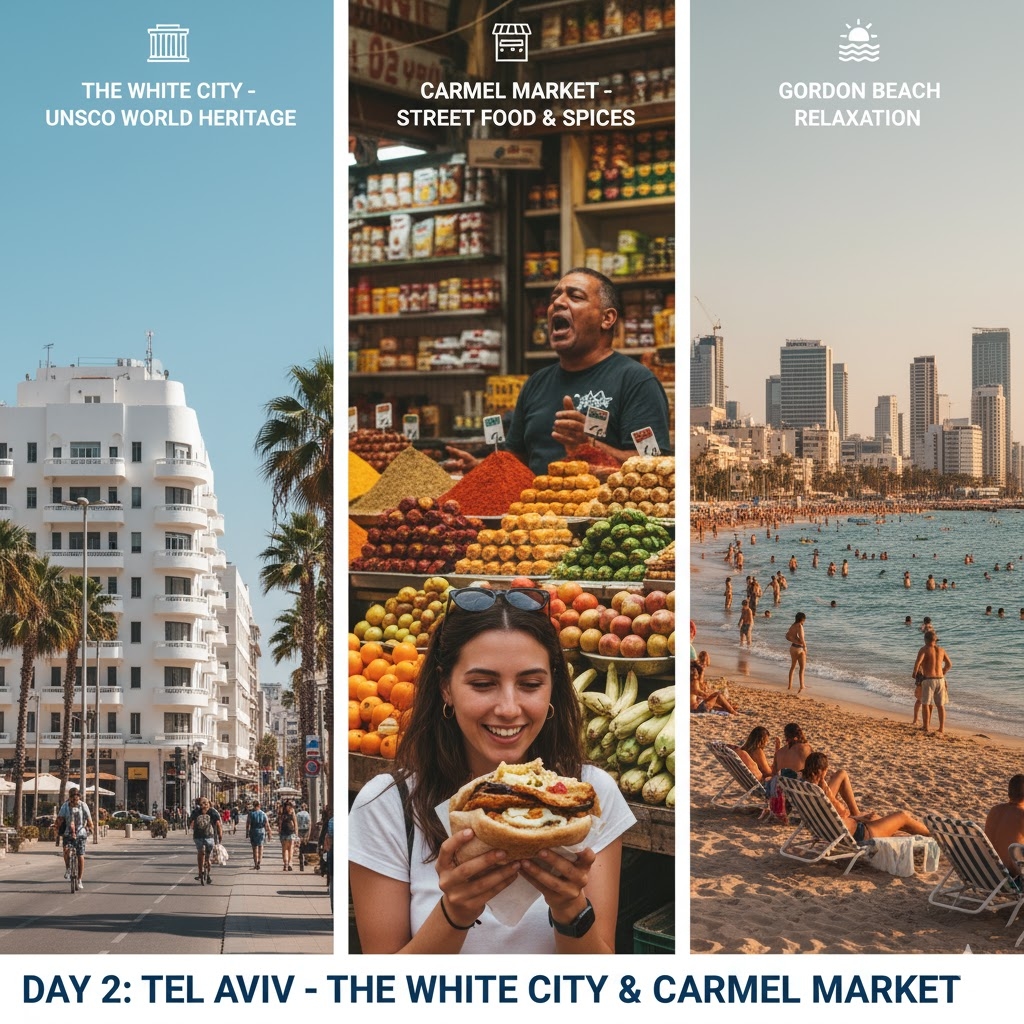
In the afternoon, dive into the chaos of the Carmel Market (Shuk HaCarmel). This is a sensory overload of shouting vendors, fresh spices, sticky baklava, and delicious street food. Grab a sabich (a pita stuffed with fried eggplant, eggs, and sauces) and enjoy the vibe. Spend the late afternoon relaxing on the famous Gordon Beach.
Day 3: Jerusalem: Mount of Olives & Mahane Yehuda
Take the high-speed train from Tel Aviv to Jerusalem. The 25-minute ride will transport you 3,000 years back in time.
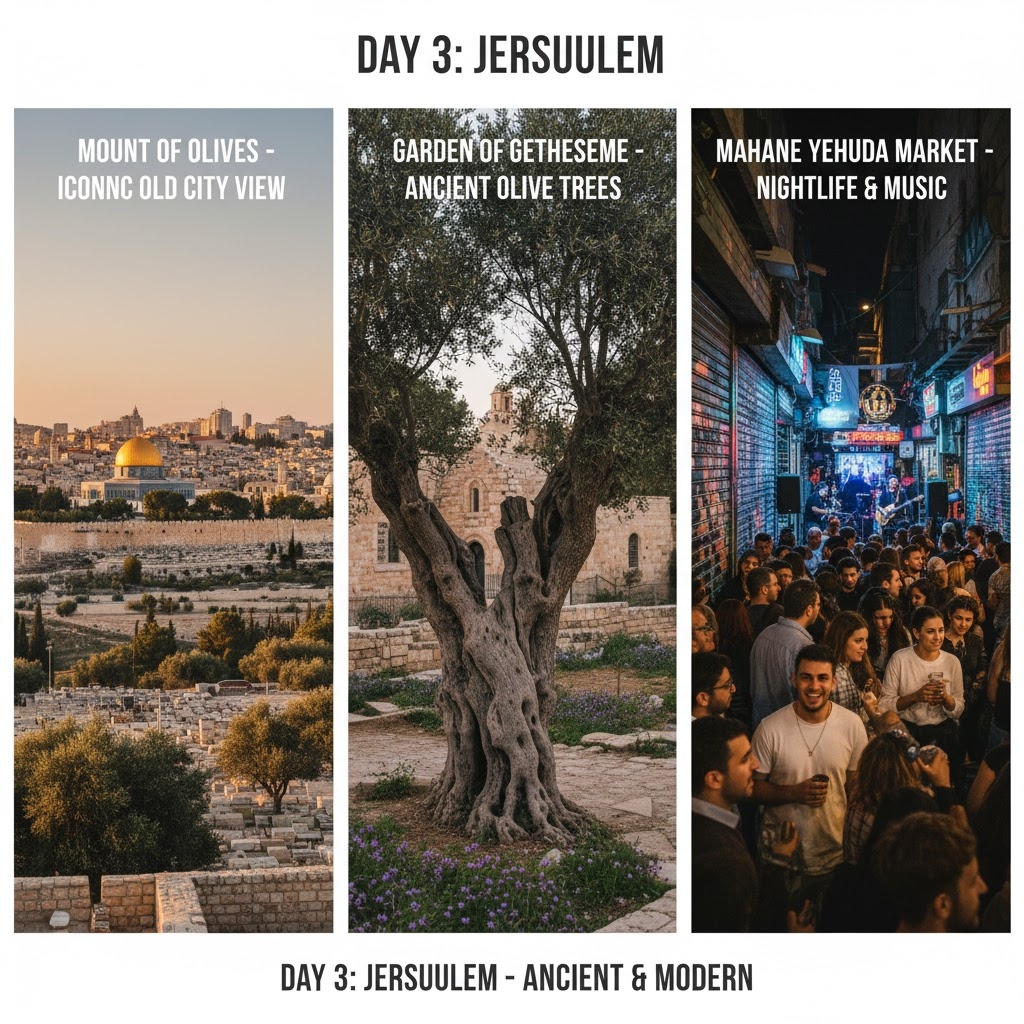
Check into your hotel and take a taxi to the Mount of Olives for the most iconic, postcard-perfect view of the Old City and the golden Dome of the Rock. From there, walk down to the Garden of Gethsemane.
In the evening, experience Jerusalem's modern side at the Mahane Yehuda Market. Unlike Carmel Market, this shuk transforms at night into a bustling hub of bars, live music, and restaurants.
Day 4: Jerusalem: The Old City (All 4 Quarters)
Put on your most comfortable shoes. Today is a deep dive into the 1-square-kilometer that is the heart of the world.
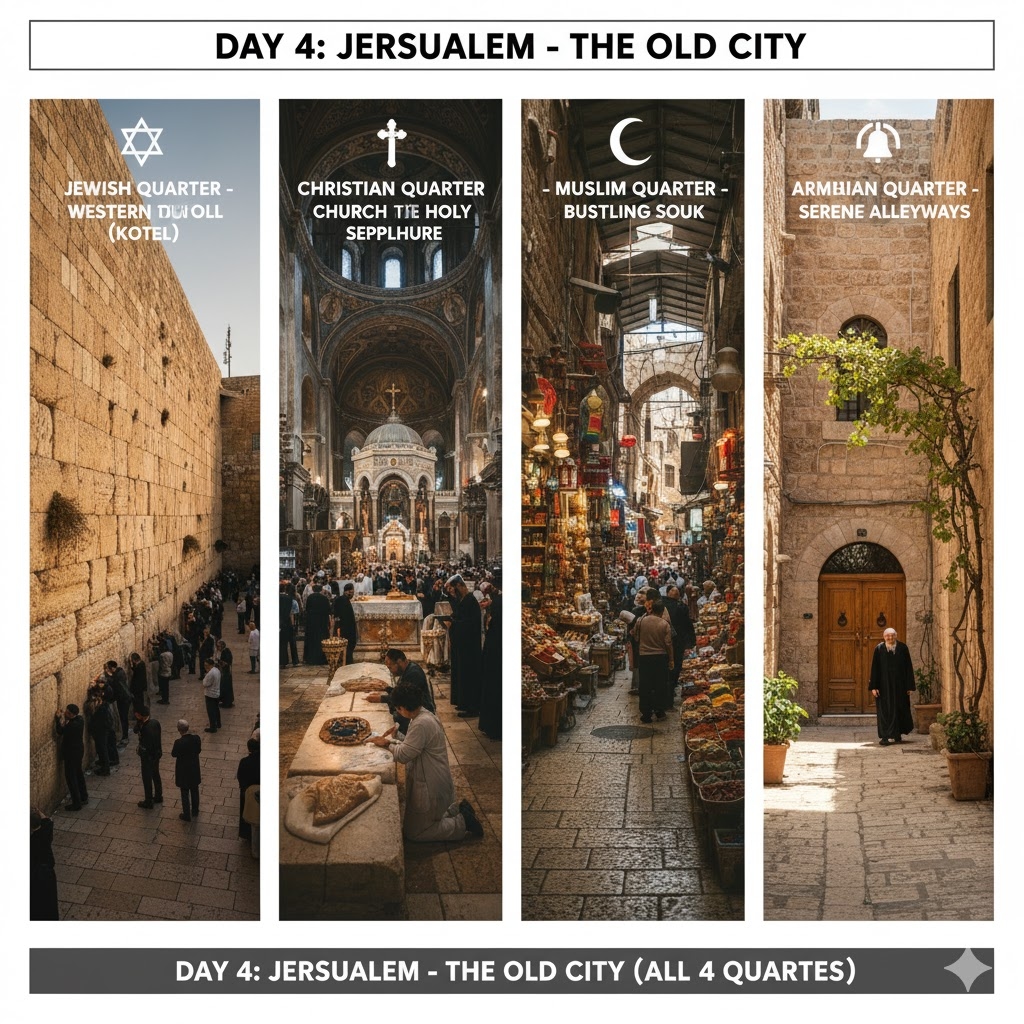
Jewish Quarter: Start at the Western Wall (Kotel), the holiest site in Judaism.
Christian Quarter: Follow the Via Dolorosa (the path of Christ) to the Church of the Holy Sepulchre, the site of the crucifixion and resurrection.
Muslim Quarter: Explore the bustling souk, the busiest in the Old City.
Armenian Quarter: The quietest and most serene quarter, a peaceful escape.
Day 5: Jerusalem: Modern History & Ancient Artifacts
Today, explore the "New City" and its world-class museums.
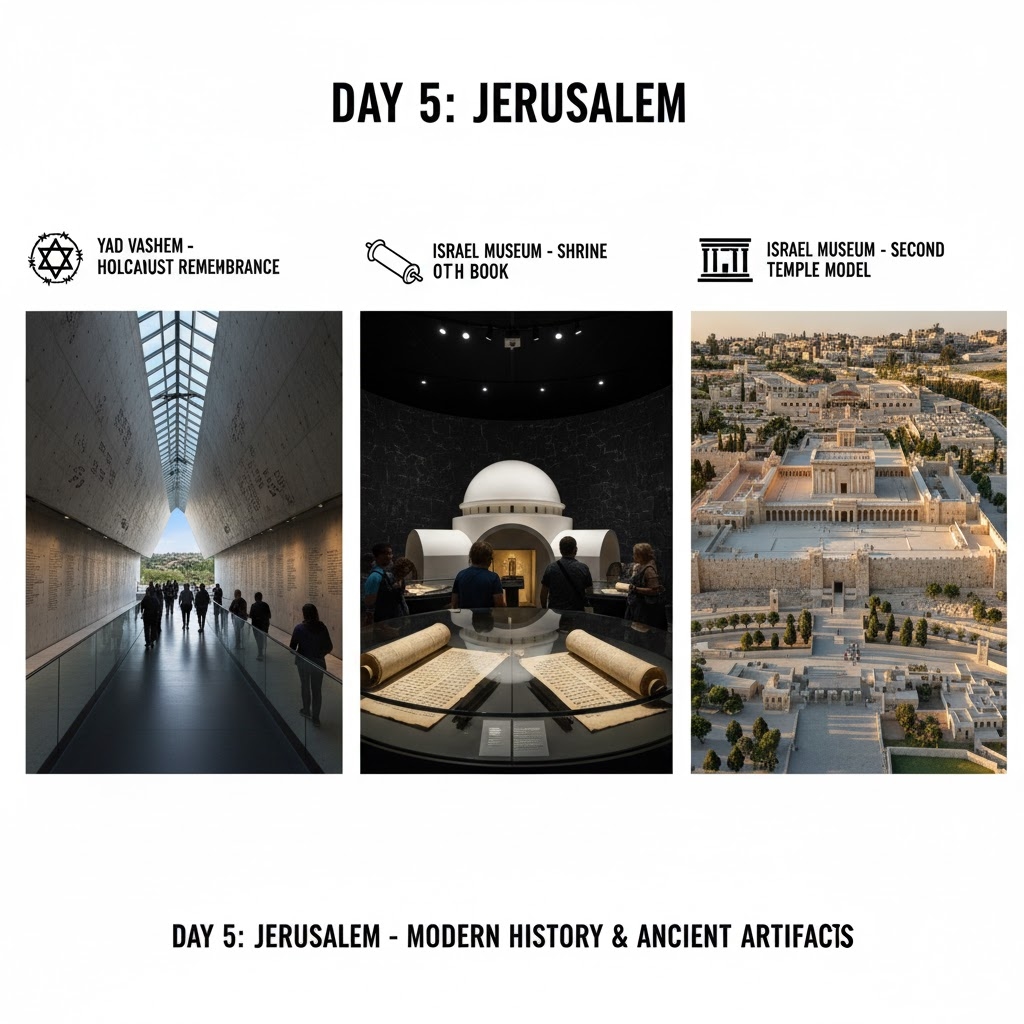
Yad Vashem: The World Holocaust Remembrance Center. It is a profoundly moving, heartbreaking, and masterfully curated museum. It is an essential part of understanding modern Israel.
Israel Museum: Spend the afternoon here. The two main highlights are the Shrine of the Book (which houses the Dead Sea Scrolls) and the incredible Second Temple Model of Jerusalem, which gives you a perfect sense of what the city looked like 2,000 years ago.
Day 6: Masada, Ein Gedi & The Dead Sea
Book a full-day tour south into the Judean Desert.
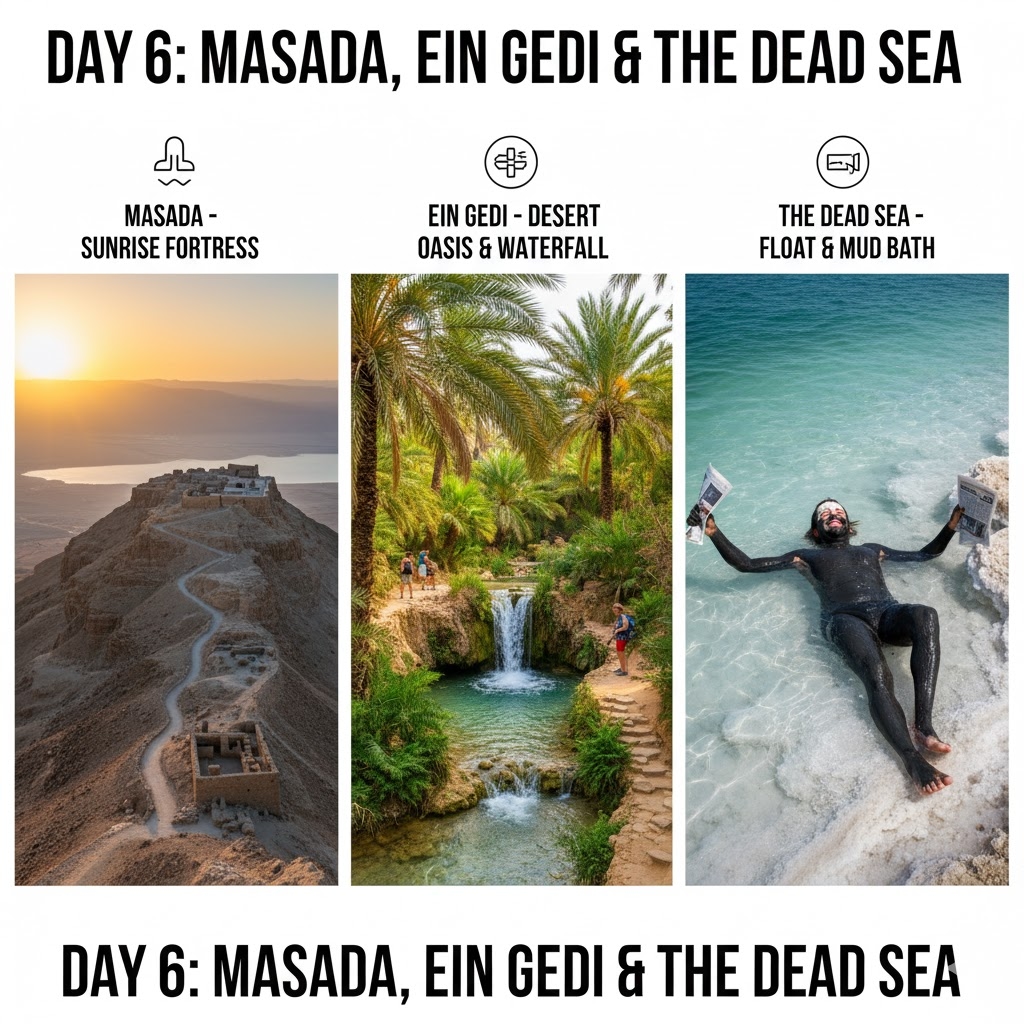
Masada: Arrive at sunrise and take the cable car (or hike the "Snake Path") up to King Herod's ancient fortress. The story of its fall is legendary, and the views over the Dead Sea are unforgettable.
Ein Gedi: A beautiful desert oasis where you can take a short hike to a waterfall.
The Dead Sea: The grand finale. Float effortlessly in the hyper-saline, mineral-rich water. Cover yourself in the famous black mud—it's a bizarre and unique experience you can't have anywhere else.
Day 7: Last-Minute Shopping & Departure
Take the train from Jerusalem back to Tel Aviv. Spend your last few hours doing souvenir shopping at the Nahalat Binyamin craft market (if it's a Tuesday or Friday) before heading to Ben Gurion Airport (TLV) for your flight home.
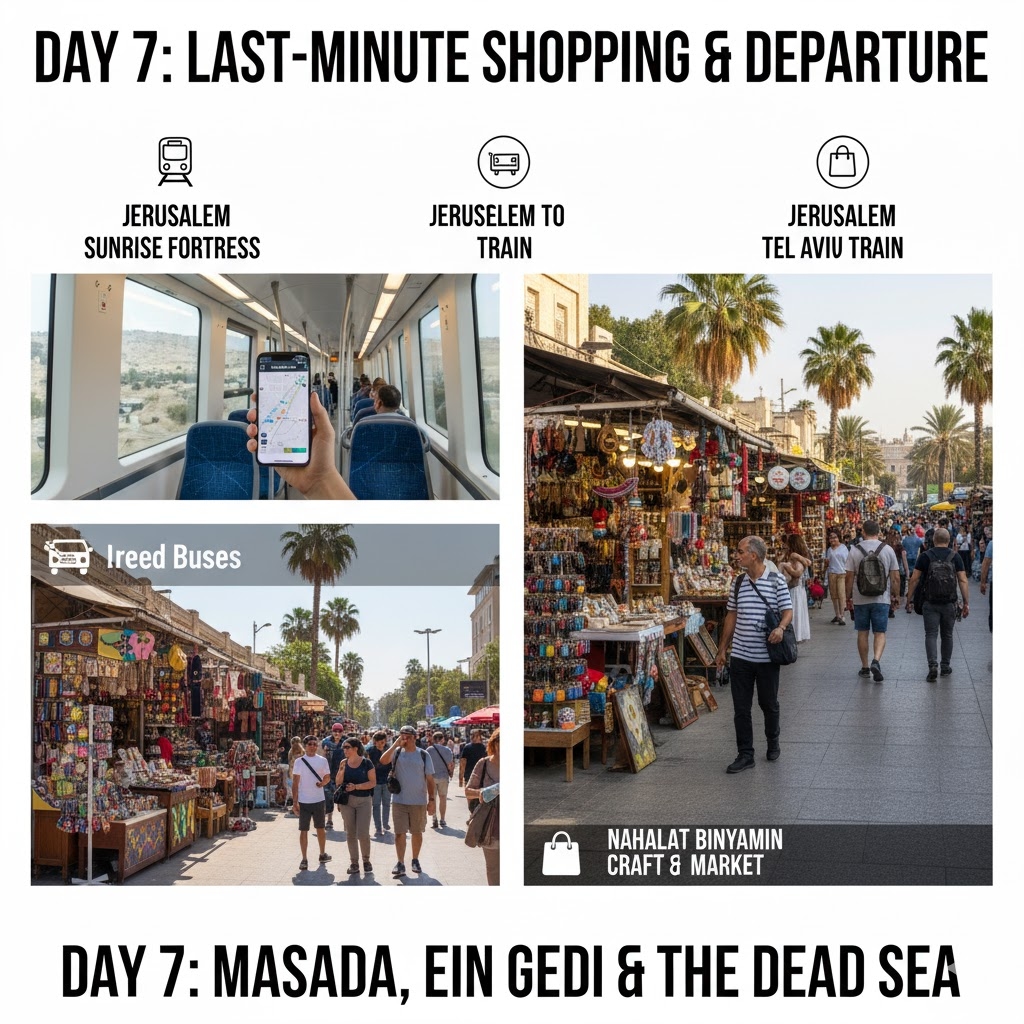
What is "Shabbat" and How Will it Affect My Trip?
This is the most important practical tip for Israel! Shabbat (the Sabbath) is the Jewish day of rest. It begins at sundown on Friday and ends at sundown on Saturday.
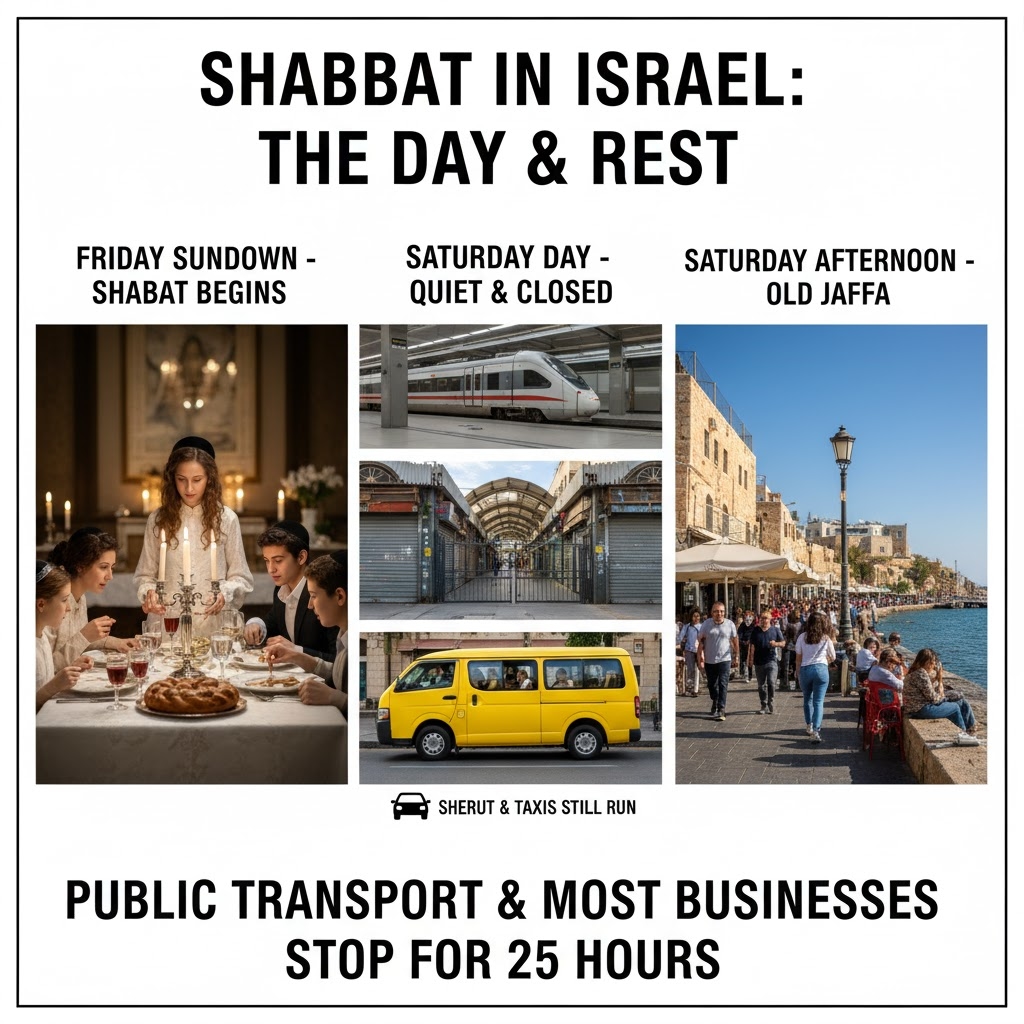
This will absolutely affect your travel.
Most public transport (buses, trains) stops.
Most Jewish-owned businesses, restaurants, and markets (like Mahane Yehuda) will close.
How to plan for it: Friday is a great day to visit the Old City (the Muslim Quarter will be bustling). On Saturday, you can walk, use an Arab-owned taxi or sherut, or visit non-Jewish sites. Plan your travel days to not fall on a Saturday.
What Should I Pack? (A Note on Dress Code)
Packing for Israel requires a mix of "beach" and "respectful."
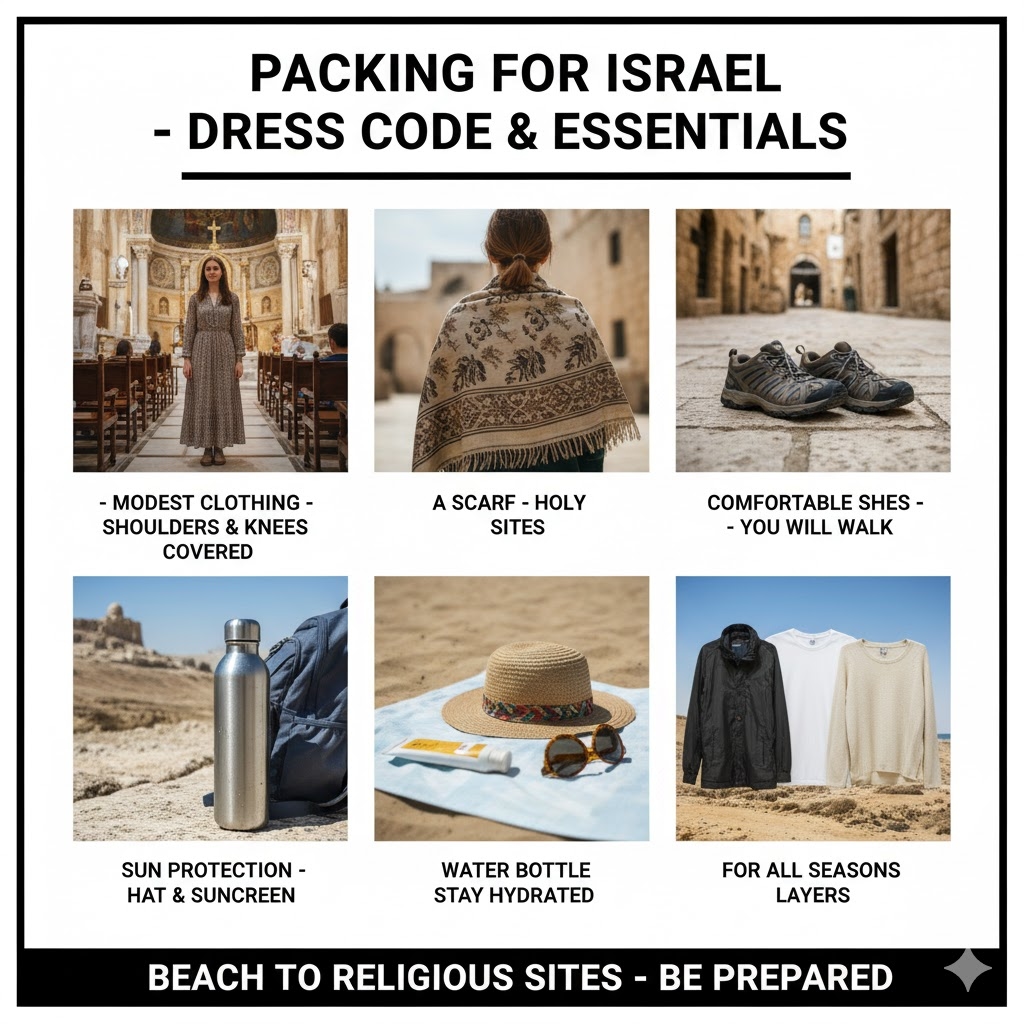
Modest Clothing: For all holy sites (in Jerusalem especially), you must cover your shoulders and knees. This applies to both men and women.
A Scarf: The most useful item. You can use it to cover your shoulders or head when entering a holy site.
Comfortable Shoes: You will walk more than you ever have in your life.
Sun Protection: Hat, sunglasses, and high-SPF sunscreen are non-negotiable.
Water Bottle: The heat, especially at the Dead Sea, is intense.
Is English Widely Spoken in Israel?
Yes. The official languages are Hebrew and Arabic, but English is spoken fluently by almost everyone in the tourism industry and by a large portion of the population. You will have no trouble communicating.
What Happens at Ben Gurion Airport? (Passport Stamps)
You've probably heard stories about the intense security at Ben Gurion Airport (TLV). It is thorough, but professional and efficient.
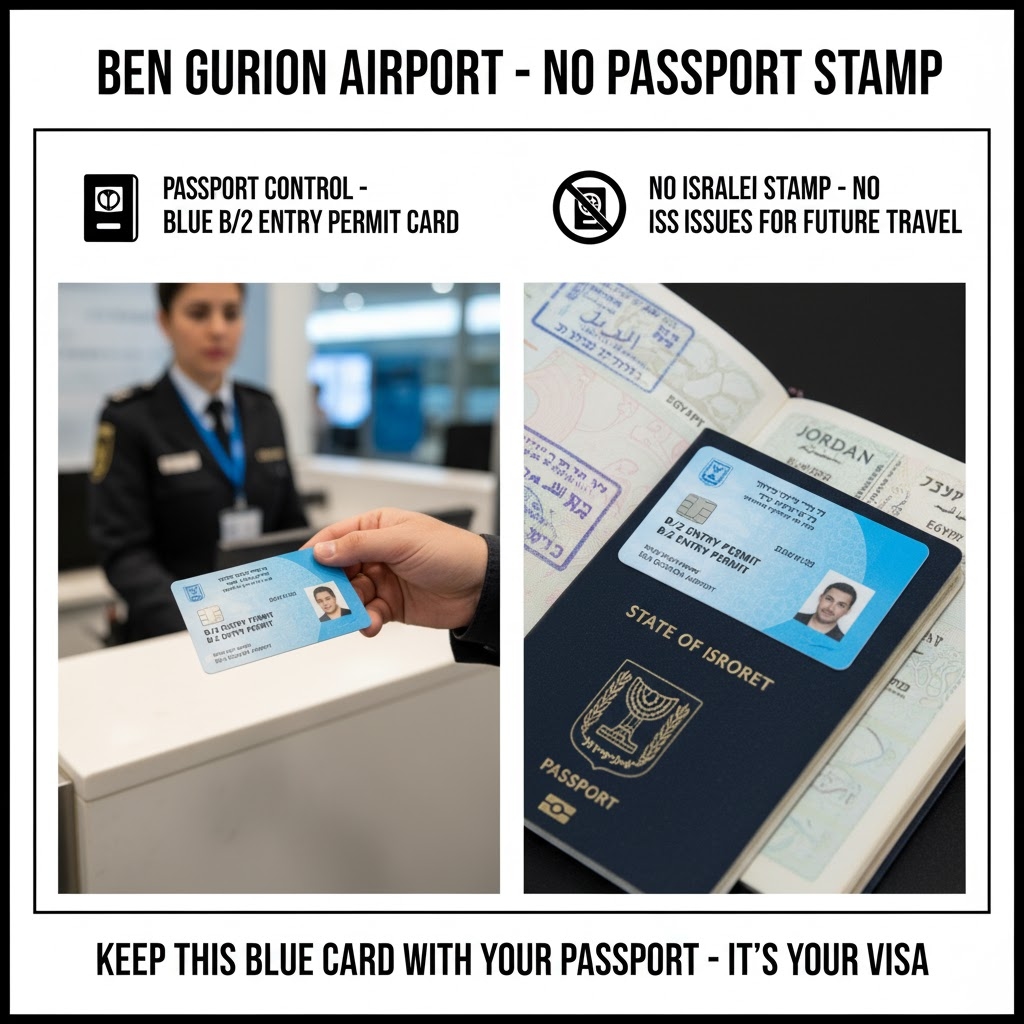
One famous myth is about passport stamps. For years, travelers worried that an Israeli stamp would prevent them from visiting many Arab or Muslim countries. This is no longer a problem. Israel does not stamp your passport. Instead, you will be given a small, blue paper card called a B/2 Entry Permit. You must keep this with your passport at all times, as it's your proof of legal entry (you'll need it for hotels and to exit the country).
